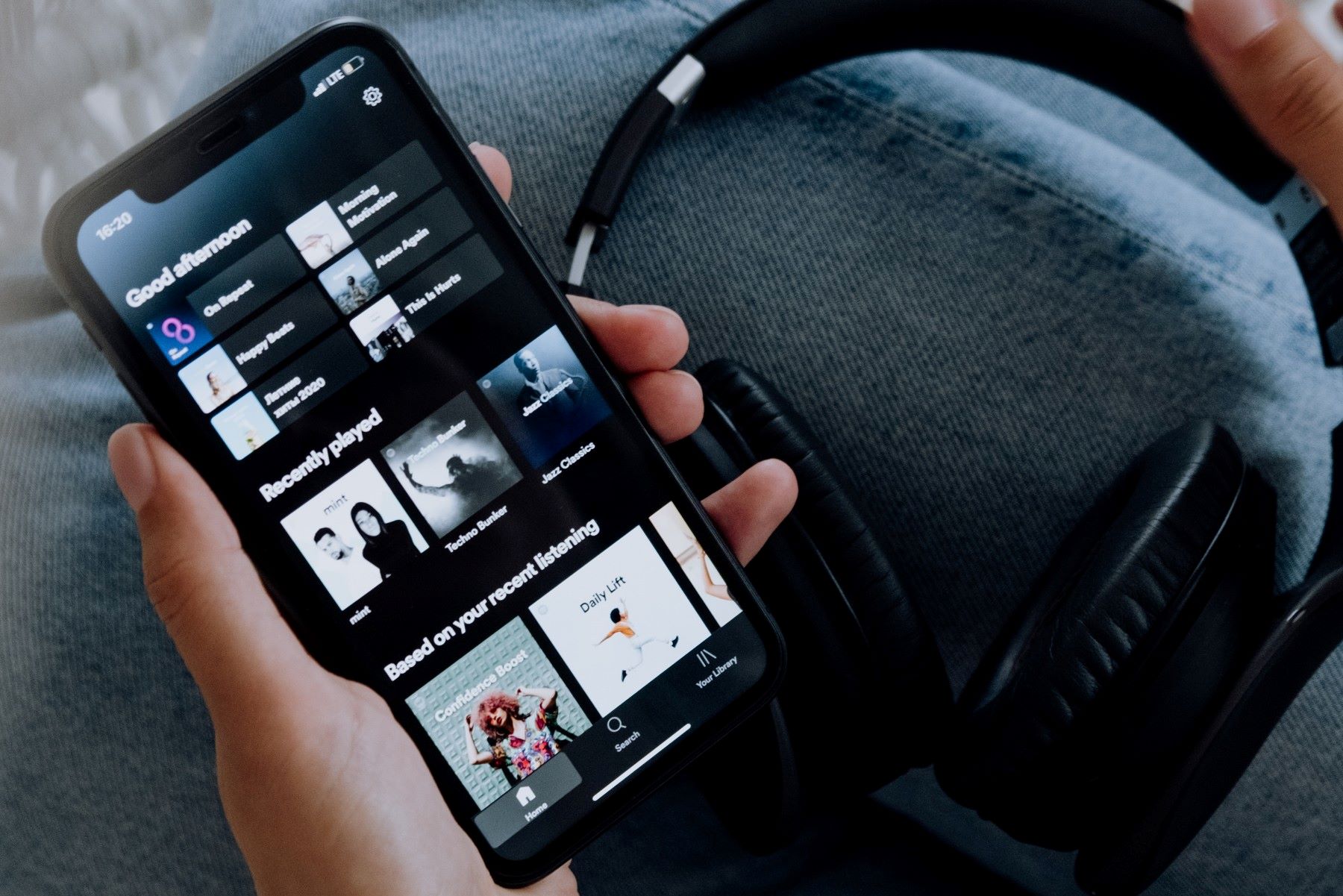Introduction
Music has become an integral part of our lives, and with the rise of the internet, accessing and downloading our favorite songs has never been easier. Whether you want to listen to music offline during your commute or create a personalized playlist for a special occasion, downloading songs off the internet allows you to enjoy your favorite tracks at your convenience.
In this article, we will guide you through the process of downloading songs off the internet, ensuring that you do so legally and safely. From finding a reliable source to selecting the right format, organizing your downloads, and troubleshooting any issues that may arise, we will cover everything you need to know to navigate this exciting realm.
Before we dive into the details, it’s essential to note that downloading copyrighted materials without proper authorization is illegal and infringes upon the rights of artists and creators. Always ensure that you have the necessary permissions or are using legitimate sources to access and download music.
Now, let’s get started on your journey to discovering how to download songs off the internet, so you can enjoy your favorite tunes anytime, anywhere.
Finding a Reliable Source
When it comes to downloading songs off the internet, finding a reliable source is crucial to ensure the quality and legality of the music you are downloading. Here are some tips to help you find a trusted and reputable source:
- Use licensed music platforms: One of the best ways to ensure the legality and quality of the songs you download is to use licensed music platforms. Websites and applications like Spotify, Apple Music, and Amazon Music offer a vast library of songs that you can legally download and enjoy. These platforms also provide a seamless user experience with high-quality audio and regular updates.
- Check official artist websites: Many artists offer free downloads or exclusive tracks on their official websites. Visiting artist websites not only allows you to discover new music directly from the source but also grants you access to legal and authorized downloads. Be sure to support your favorite artists by exploring their official websites.
- Look for reputable music blogs and forums: Music blogs and forums often share links to legal and free downloads, especially for independent or up-and-coming artists. These platforms can be a treasure trove of undiscovered gems and legal downloads. However, always exercise caution and double-check the credibility of the source before downloading any content.
- Avoid suspicious and unauthorized websites: It’s essential to be cautious of websites that offer free music downloads without proper licensing or authorization. These sites may host pirated content or be sources of malware and viruses. If a website looks suspicious or too good to be true, it’s better to steer clear of it to protect your device and privacy.
By following these guidelines, you can find reliable sources for downloading songs off the internet. Remember to prioritize legal and licensed platforms, check official artist websites, explore trusted music blogs and forums, and avoid suspicious websites. This way, you can enjoy high-quality music while respecting the rights of artists and creators.
Checking for Copyright
Before downloading any song from the internet, it’s crucial to check for copyright to ensure that you are not infringing upon the rights of the artists and creators. Here are some steps you can take to verify if a song is copyrighted:
- Research the song: Perform a quick internet search to gather information about the song and its copyright status. Look for details about the artist, release dates, and any official statements regarding the song’s availability for download.
- Check for licensing information: If you are downloading from a licensed music platform or website, the songs provided there are typically authorized for download. Always read the licensing agreements and terms of use to understand the permissions granted to users. This ensures that you are within the legal boundaries when downloading the songs.
- Consult copyright databases: Several copyright databases, such as the U.S. Copyright Office’s online database, allow you to search for registered copyrights. These databases provide information on the copyright holder, rights, and any restrictions associated with the song. Checking these databases can give you a clear understanding of the copyright status of a specific song.
- Look for creative commons licenses: Some artists choose to release their music under creative commons licenses, which allow for certain permissions, such as free downloads or non-commercial use. Creative commons licenses vary, so it’s important to review the specific terms and restrictions before downloading.
Remember, unauthorized downloading of copyrighted material is against the law and can lead to legal consequences. Respect the rights of artists and creators by checking for copyright and only downloading songs that are legally available for download. By doing so, you can enjoy your favorite music guilt-free and support the artists who bring joy and inspiration to our lives.
Selecting the Right Format
When downloading songs off the internet, it’s important to select the right format to ensure compatibility and optimal audio quality. Different formats offer varying levels of audio compression and compatibility with different devices. Here are some popular formats to consider:
- MP3: MP3 is the most widely supported audio format and offers good sound quality with a relatively small file size. It works well with most devices and music players, making it a popular choice for downloading songs. However, keep in mind that MP3 is a compressed format, which may result in a slight loss of audio quality.
- FLAC: FLAC is a lossless audio format that provides superior sound quality compared to MP3. It offers high-fidelity audio and is perfect for those who want to experience music with utmost clarity. However, FLAC files are larger in size, so make sure your device and music player support this format if you choose to download songs in FLAC.
- AAC: AAC (Advanced Audio Coding) is a format that provides better sound quality than MP3 at similar or smaller file sizes. It is widely supported and commonly used by platforms like iTunes and Apple Music. If you are an Apple user, AAC is a good option to consider.
- WAV: WAV is an uncompressed audio format that offers the highest audio quality but results in larger file sizes. It is primarily used for professional audio applications and is not as commonly used for downloading songs unless you specifically require the utmost audio fidelity.
When selecting the right format, consider your specific needs, device compatibility, and audio quality preferences. Most platforms and music players offer options to convert between different formats if needed. It’s important to strike a balance between file size and audio quality based on your preferences and available storage capacity.
Additionally, always verify the format compatibility with your device and music player before downloading songs. Some devices may have limitations on supported formats, so it’s crucial to ensure that the format you choose will work seamlessly.
By selecting the right format for your downloaded songs, you can enjoy high-quality audio that suits your preferences and ensures compatibility with your devices.
Downloading the Song
Now that you’ve found a reliable source and selected the right format, it’s time to download the song. The process may differ slightly depending on the platform or website you’re using, but the general steps are as follows:
- Click the download button: Look for the download button or link associated with the song you want to download. It’s usually labeled with a downward arrow icon or may be explicitly mentioned as “Download.”
- Select your format: If the platform offers multiple format options, choose the format you previously decided upon based on your preferences and device compatibility.
- Confirm the download location: Some platforms may provide an option to choose the location where the downloaded file will be saved. Select the desired folder or directory on your device.
- Wait for the download to complete: Depending on the size of the file and your internet connection speed, the download may take a few moments or longer. Be patient and avoid interrupting the download process.
- Check the file: Once the download is complete, navigate to the folder or directory where the file was saved. Verify that the file size matches the expected size and that it is in the correct format.
It’s important to note that some platforms may require you to create an account or log in before allowing you to download songs. Follow the platform’s instructions and provide any necessary information to proceed with the download.
Always exercise caution while downloading files from the internet. Be wary of any unexpected pop-ups, ads, or prompts that may lead to potentially harmful downloads or malware. Stick to trusted sources and platforms to mitigate any risks.
By following these steps, you’ll be able to successfully download your favorite songs from the internet and enjoy them at your convenience.
Organizing Your Downloads
As you start downloading songs off the internet, it’s essential to have an organized system in place to manage and locate your music collection easily. Here are some tips for effectively organizing your downloaded songs:
- Create a dedicated folder: Begin by creating a folder specifically for your downloaded songs. Choose a location on your computer or external storage device where you want to keep all your music files.
- Organize by artist or album: Within your main music folder, create subfolders for each artist or album. This will help you categorize and group your songs based on your preference and make it easier to find specific tracks later on.
- Use consistent naming conventions: When naming your song files, consider using a consistent naming convention that includes the artist, track title, and album name. Doing so will make it easier to search for specific songs and maintain a tidy collection.
- Add metadata tags: To further enhance organization and ease of searching, consider adding metadata tags to your music files. Metadata tags include information such as the artist, album, track number, genre, and year. Most media players allow you to edit and add these tags directly within the application.
- Utilize music library software: If you have a large music collection, you may benefit from using music library software to manage and organize your songs. These applications provide advanced organization features, including automatic metadata tagging, album artwork retrieval, and playlist creation.
Regularly maintain and update your music library by adding new downloads to the appropriate folders and updating metadata information. This will help you stay organized and ensure that you can easily browse and enjoy your music collection.
Remember to back up your music collection regularly to prevent any loss of files. Consider creating a separate backup of your music folder on an external hard drive or cloud storage service to safeguard against data loss or device failure.
By implementing these organizational strategies, you can create a well-structured music library that allows for easy navigation and an enhanced listening experience.
Troubleshooting and Tips
While downloading songs off the internet is generally a straightforward process, you may encounter some issues or challenges along the way. Here are some troubleshooting tips to help you overcome common problems and enhance your downloading experience:
- Slow downloads: If you’re experiencing slow download speeds, try pausing any other active downloads or streaming activities that could be using your bandwidth. Additionally, consider connecting to a more stable and faster internet connection to accelerate the download process.
- Incomplete or corrupted downloads: Sometimes, a download may not complete successfully or the file may become corrupted. If this happens, try downloading the song again from a trusted source. It’s also a good practice to check the file size and compare it to the expected size to ensure the download is complete.
- Unsupported file format: If you encounter a file format that is not supported by your music player, you can use audio conversion software to convert the file to a compatible format. There are various free and paid tools available online that allow for easy conversion between different audio formats.
- File not playing properly: If you’re having trouble playing a downloaded song, ensure that your music player is up to date with the latest version. You can also try playing the file in an alternative player or troubleshooting the issue by checking the audio settings on your device.
- Legal and ethical considerations: Always prioritize downloading songs from legitimate and authorized sources. Remember that unauthorized downloading or sharing of copyrighted materials is illegal. Respect the rights of artists and support them by using licensed platforms and purchasing their music when possible.
Here are some additional tips to enhance your downloading experience:
- Regularly update your antivirus software to protect your device from malware and viruses.
- Take advantage of streaming services with offline playback options to avoid the need for downloading and managing files.
- Consider subscribing to music streaming platforms that offer high-quality, ad-free music for a seamless listening experience.
- Support local and independent artists by purchasing music directly from their websites or attending live performances.
By following these troubleshooting tips and implementing these suggestions, you can overcome any challenges that may arise during the downloading process and make the most out of your music collection.
Conclusion
Downloading songs off the internet allows us to enjoy our favorite music anytime, anywhere. By following the guidelines outlined in this article, you can navigate the process of downloading songs safely, legally, and with ease.
We started by emphasizing the importance of finding a reliable source for downloading music. Using licensed platforms, checking official artist websites, and exploring reputable music blogs and forums ensures that you have access to legal and authorized downloads.
We then discussed the significance of checking for copyright to respect the rights of artists and creators. By performing research, consulting copyright databases, and looking for creative commons licenses, you can download songs guilt-free and support the music industry.
Selecting the right format is crucial for compatibility and optimal audio quality. Understanding different formats like MP3, FLAC, AAC, and WAV allows you to make an informed decision based on your preferences and device capabilities.
We also covered the step-by-step process of downloading a song, including clicking the download button, selecting the format, confirming the download location, and checking the file for successful completion.
To ensure a well-organized music collection, we discussed the importance of creating a dedicated folder, organizing songs by artist or album, using consistent naming conventions, and utilizing metadata tags. These practices make it easier to locate and enjoy your downloaded songs.
In the troubleshooting and tips section, we addressed common issues such as slow downloads, incomplete files, unsupported formats, and playback problems. By following the suggested solutions and adopting additional tips, you can overcome challenges and enhance your downloading experience.
Finally, we reminded you of the legal and ethical considerations surrounding downloading songs. It is vital to prioritize authorized sources, support artists, and respect copyright laws to ensure a sustainable music industry.
Now armed with the knowledge and tips provided in this article, you can confidently embark on your journey of downloading songs off the internet. Enjoy your favorite music and explore new tracks at your convenience, always keeping in mind the importance of supporting the artists who bring joy to our lives through their music.

























